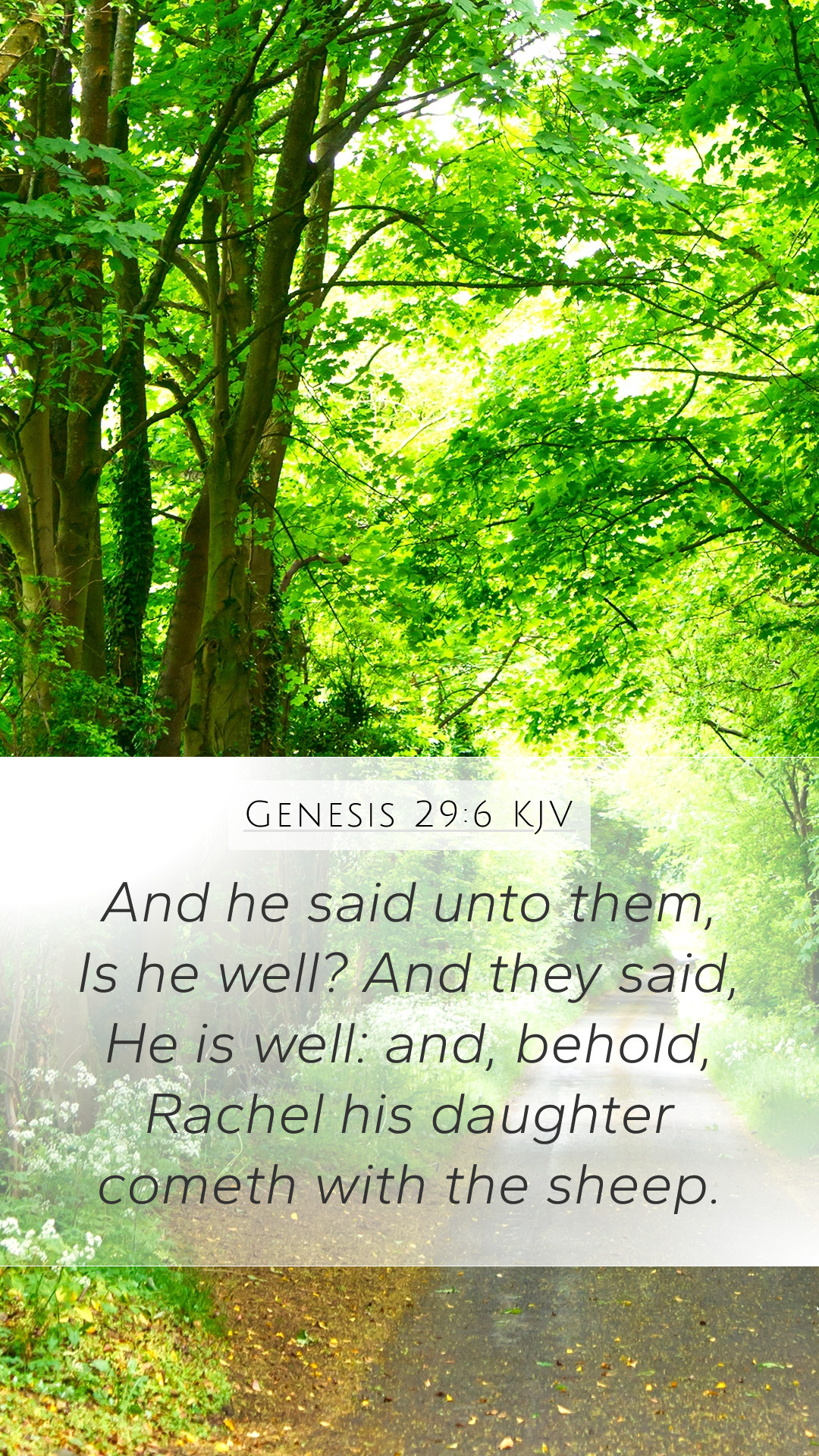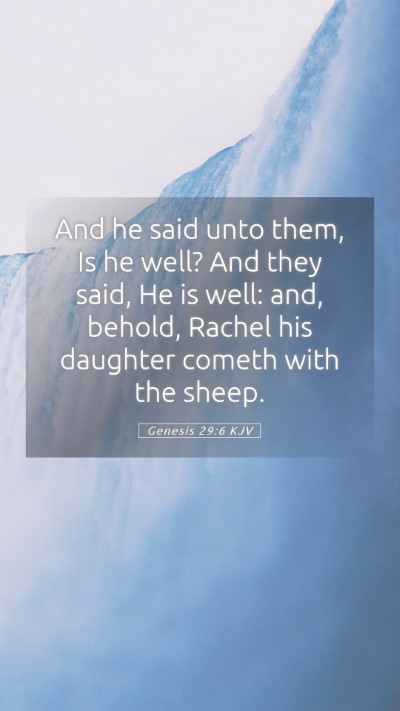Understanding Genesis 29:6
Genesis 29:6 presents a pivotal moment in the narrative of Jacob as he encounters Rachel at the well. The verse states, "And he said, Is he well? And they said, He is well: and, behold, Rachel his daughter cometh with the sheep." This passage, while appearing straightforward, is rich in meaning and connects deeply with various themes in the scripture.
Bible Verse Commentary
This verse serves as a transition in the biblical narrative where Jacob, having fled from his brother Esau, arrives at Haran and meets Rachel, marking a significant turn in his journey.
Contextual Significance
The meeting of Jacob and Rachel at the well can be interpreted through the lens of traditional customs and the importance of wells in biblical societies as gathering places. Wells often symbolize life and sustenance, indicating God's providence in Jacob's life. Additionally, the well as a meeting place mirrors other key events in scripture where pivotal characters meet at wells, such as Isaac and Rebekah (Genesis 24) and Moses and Zipporah (Exodus 2).
- Matthew Henry's Commentary: Henry indicates that Jacob's inquiry about Rachel's well-being not only marks the introduction of a key character but also sets the tone for developing relationships based on mutual affection and faith.
- Albert Barnes' Notes: Barnes highlights the significance of the statement about Rachel, suggesting her role as not only Jacob's future wife but also as a carrier of the covenant promise through her children.
- Adam Clarke's Commentary: Clarke expands on the customs surrounding wells, stating that this scene represents not just Jacob's physical journey but also a spiritual journey toward fulfillment and God’s purpose for his life.
Bible Study Insights
The idea of God providentially leading Jacob can be seen as reflective of broader themes in scripture, where God guides individuals toward their destinies. For instance, the arrival of Rachel at this moment indicates divine timing and purpose.
Symbolism and Themes
- Divine Appointment: The meeting at the well symbolizes God's hand in orchestrating events that fulfill His promises.
- Marriage and Covenant: Jacob’s future with Rachel signifies the continuation of the Abrahamic covenant, emphasizing the importance of righteous unions in the fulfilling of divine promises.
- Shepherd Imagery: The sheep referenced represent God's care and guidance, similar to the imagery used in Psalms 23 regarding the Lord as a shepherd.
Application of Genesis 29:6 to Daily Life
This verse encourages us to recognize and trust in God's providential care in our own life journeys. Just as Jacob's encounter was significant, our encounters and relationships can also serve greater purposes when viewed through the lens of faith.
Self-Reflection Questions
- How can I be more aware of God's hand in my life's encounters?
- What steps can I take to ensure that my relationships are aligned with God's purposes?
- In what ways can my life reflect the themes of divine guidance seen in this passage?
Related Bible Cross References
- Genesis 24:11 - The encounter at the well with Isaac and Rebekah.
- Exodus 2:15-21 - Moses meets Zipporah at a well.
- John 4:7-26 - Jesus' conversation at the well with the Samaritan woman.
Conclusion
Genesis 29:6 encapsulates much more than a simple greeting; it weaves together themes of divine providence, relationships, and the unfolding of God's covenant promise. Understanding this passage through public domain commentaries enhances our appreciation for the scripture and encourages deeper Bible study insights.


